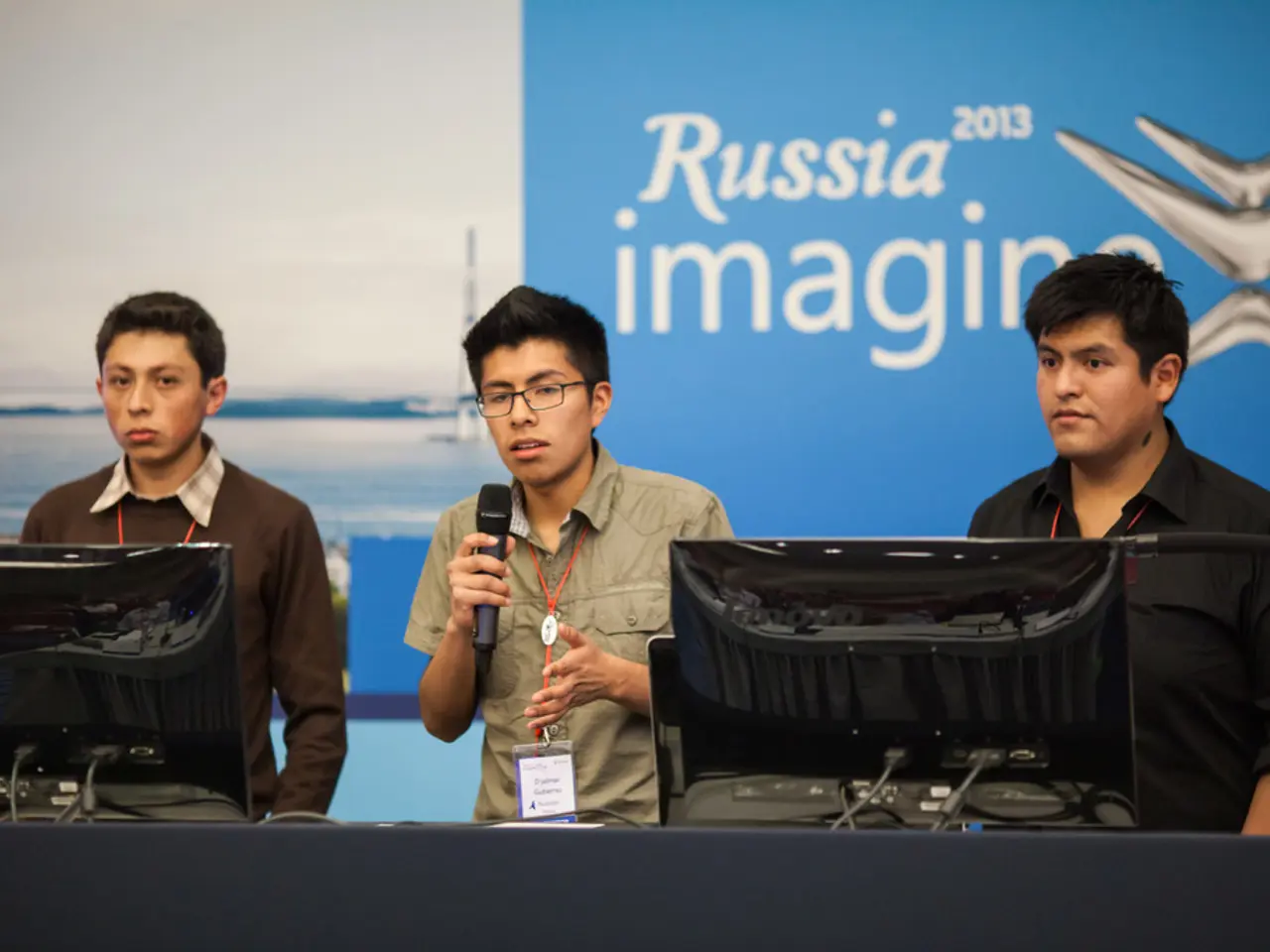Russia's current family support measures fall short, according to Putin
**Russian Government Intensifies Efforts to Address Demographic Challenges and Support Families**
In a bid to address Russia's demographic challenges and reinforce family support mechanisms, President Vladimir Putin has reshuffled the State Council Commission on Family [1]. This commission, now active, aims to focus on areas such as support for families with children, targeted aid for large families and youth, regional initiatives, and business involvement.
The financial and social policy measures introduced or proposed by the government aim to alleviate the primary concern of Russian citizens—financial insecurity—which is cited as the main reason for delaying or avoiding having children [4]. Some of these measures include state-subsidized monthly allowances, enhanced maternity capital payments, and tax and social insurance adjustments.
Recent polling indicates that these financial incentives could encourage Russians to have children. For instance, 69% of respondents said that state-subsidized monthly allowances would be an effective incentive, while about half of those polled expressed that additional maternity capital payments would be effective [4].
However, President Putin has expressed concern that the current support measures for families are insufficient, particularly in relation to the ongoing conflict in Eastern Ukraine [5]. In response, the government has announced the expansion of educational benefits for the widows of participants in this conflict. This new policy initiative is aimed at addressing the needs of these families and is a potential step towards addressing Russia's demographic challenges.
The demographic policy is being pursued against the backdrop of Russia’s lowest birth rate in years and persistent economic uncertainties [4]. While the government emphasizes support for families and children, the core domestic focus remains on economic support, healthcare, housing, and work-life balance as primary levers to reverse population decline.
In conclusion, President Putin’s government has prioritized a multi-faceted approach to demographic challenges, combining financial incentives, improved social services, regional innovation, and private sector engagement [1][4]. The effectiveness of these measures in reversing Russia’s demographic decline remains to be seen as the country faces both domestic and geopolitical pressures.
**Table: Key Measures and Proposals**
| Measure Type | Description | Status | |-----------------------------|-----------------------------------------------------------------------------|---------------------| | State Council Commission | Coordinated policy on family support, housing, healthcare, work-life balance| Active (reshuffled) | | Financial Incentives | Monthly allowances, enhanced maternity capital, tax/social insurance relief | Proposed/Active | | Regional Best Practices | Local initiatives for large families and youth | Ongoing | | Business Engagement | Private sector role in demographic solutions | Encouraged | | Expansion of Educational Benefits | For the widows of participants in the special military operation | New policy initiative |
[1] TASS. (2025, June 16). State Council Commission on Family to be reshuffled to address demographic decline, reinforce family support mechanisms. Retrieved from https://tass.com/society/1213683 [2] The Guardian. (2022, March 15). Russia to allow adoption of Ukrainian children by Russian couples in annexed Crimea. Retrieved from https://www.theguardian.com/world/2022/mar/15/russia-to-allow-adoption-of-ukrainian-children-by-russian-couples-in-annexed-crimea [3] The New York Times. (2022, March 17). Russia Says It Will Allow Adoptions of Ukrainian Children. Retrieved from https://www.nytimes.com/2022/03/17/world/europe/russia-ukraine-adoptions.html [4] Levada Center. (2023, May 10). Attitudes of Russians to the Demographic Policy of the Russian Federation. Retrieved from https://levada.ru/2023/05/10/nachala-rossiiskoy-demograficheskoy-politiki-attitudi-rossiyan-k-demograficheskoy-politike-rossii/ [5] TASS. (2023, July 16). Putin concerned about low birthrate, says many women in Russia have children at 28-29. Retrieved from https://tass.com/society/1236717
- The State Council Commission, now active, is focusing on policy-and-legislation aimed at family-dynamics, such as support for families with children, targeted aid for large families and youth, and regional initiatives, as part of the Russian Government's efforts to address demographic challenges and support families.
- With the intention to alleviate financial insecurity, which is a primary reason for delaying or avoiding having children, President Putin's government has proposed financial incentives like state-subsidized monthly allowances, enhanced maternity capital payments, and tax and social insurance adjustments, demonstrating a shift in relationships between the government and its citizens.
- As part of a comprehensive demographic policy, the Russian Government is also addressing the needs of specific family-dynamics, such as those affected by the ongoing conflict in Eastern Ukraine, through initiatives like the expansion of educational benefits for the widows of participants in this conflict, illustrating the interplay between politics, relationships, lifestyle, and general-news in shaping policy-and-legislation.







